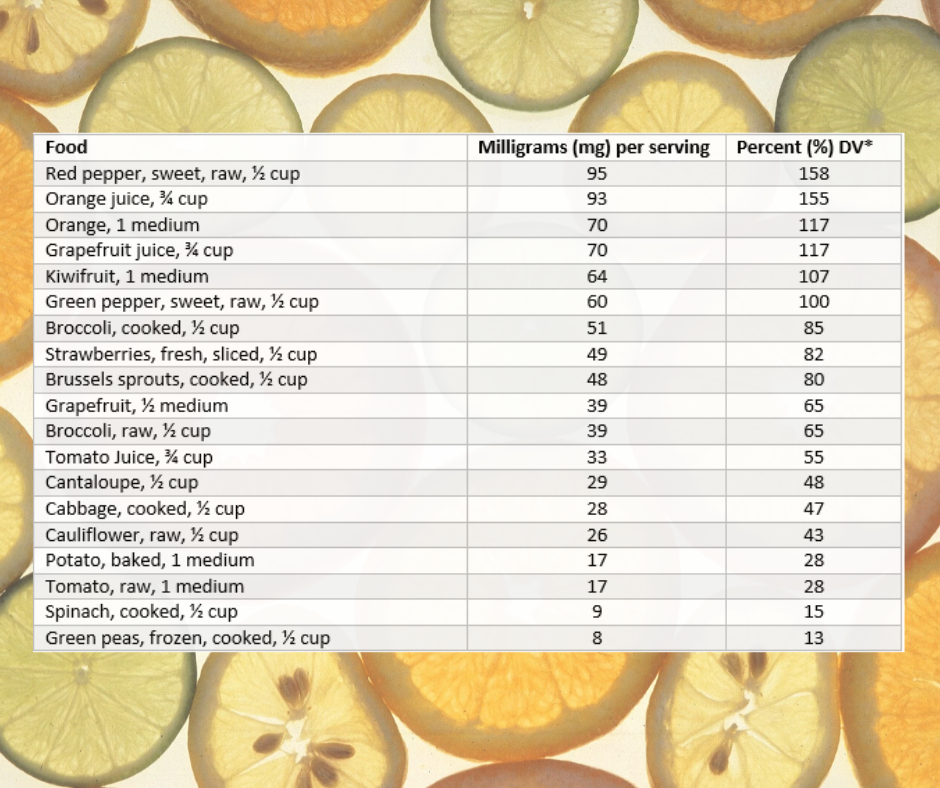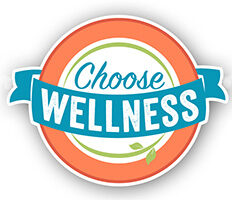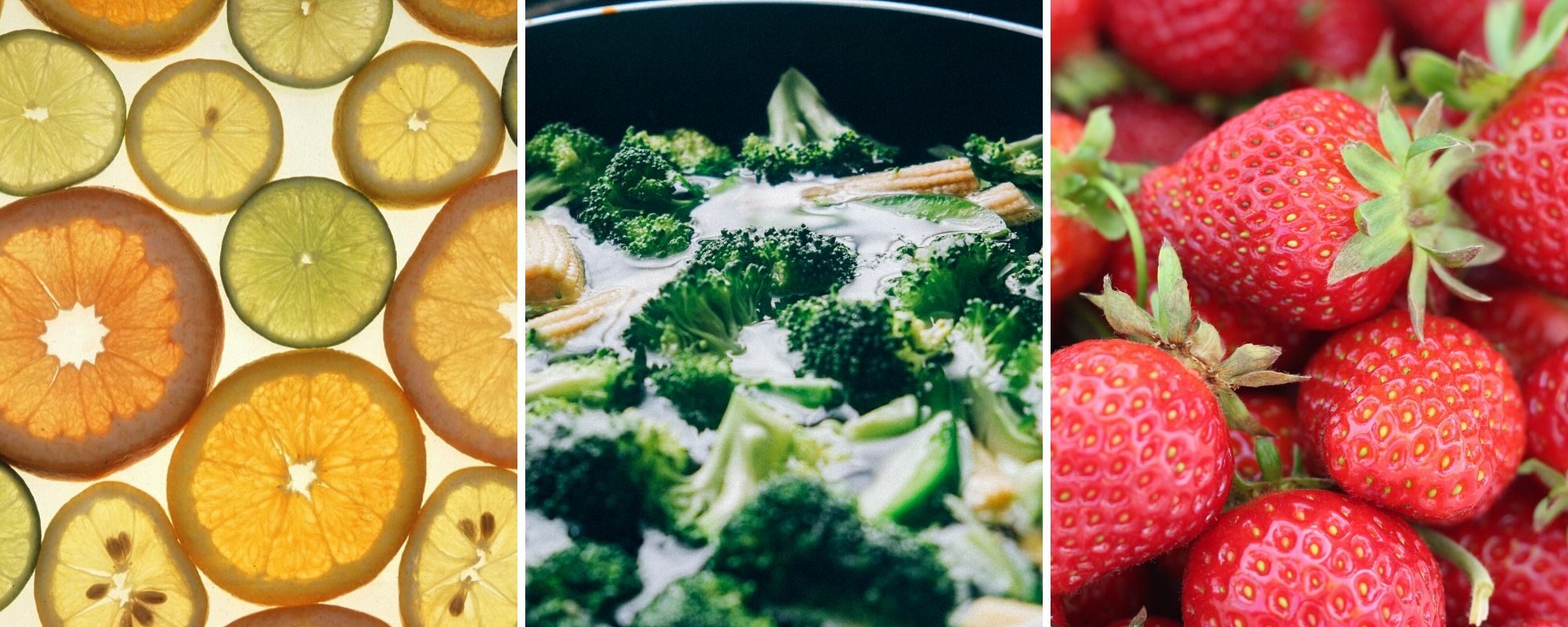Vitamin C, also known as ascorbic acid, is a water-soluble vitamin well known for its role in supporting a healthy immune system. Vitamin C is not made by your body, so it must come from foods you eat. Vitamin C is found in many foods, not just oranges and orange juice. Other sources of Vitamin C are citrus fruits, strawberries, kiwi, potatoes, tomatoes, green and red bell peppers, broccoli, and Brussel sprouts. You can eat these foods raw or cooked. However, prolonged exposure to heat or storage can cause nutrient loss. To ensure the most nutrients, eat them as soon as possible after buying them, or if cooking them, steam or microwave them for a short time.
The RDA (Recommended Daily Allowance) varies by age and sex. For adult men the RDA is 90 mg/day. Adult women is 75 mg/day. * Pregnant and lactating women have higher recommendations, smokers have an added 35 mg/day to RDA vs non smokers.
Below are the amount of Vitamin C in some popular foods:

(National Institute of Health, Vitamin C Factsheet for Health Professionals)
There is research that shows Vitamin C is necessary for growth and repair of tissue in the body, helps heal wounds, repair and maintain healthy teeth, skin and cartilage and improves the absorption of nonheme iron (the form of iron present in plant-based foods). Insufficient vitamin C intake causes scurvy, which is characterized by fatigue, inflammation of gums, widespread connective tissue weakness, and capillary fragility (when the smallest blood vessels, capillaries, become weak).
Vitamin C is an antioxidant, which fights free radicals in the body which can prevent or delay certain cancers and heart disease and promote healthy aging. High doses of Vitamin C may be linked to shortening the length of cold symptoms. However more research is needed and there are risk with high doses of Vitamin C supplementation, so check with your doctor.

